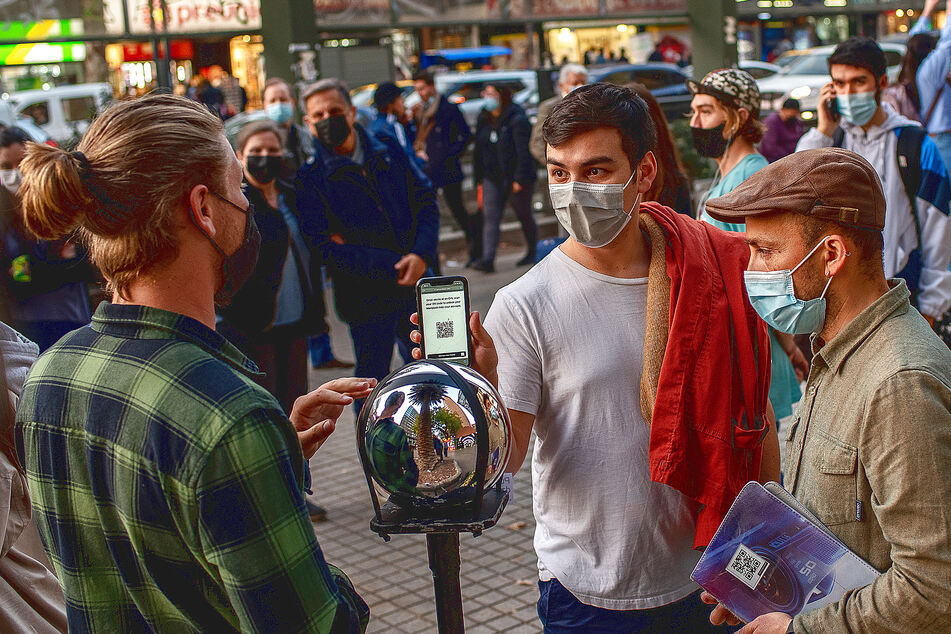Worldcoin: The strange case of eye-scanning orbs and a crypto copycat fight
San Francisco, California - The rollout of a new cryptocurrency that features eye-scanning orbs has sparked a buzz from supporters and critics – but there might be something fishy going on with this latest gimmick.

There's yet another new cryptocurrency company on the block, and in an extremely crowded field, it takes something like eye-scanning spheres to set you apart. That's exactly what OpenAI CEO Sam Altman is pitching for his Worldcoin.
But aside from this pretty bizarre feature, there’s another reason to raise an eyebrow, as Worldcoin is being accused of to simply copying the name of an existing cryptocurrency.
According to that "other" Worldcoin's homepage and dedicated Discord channel, the original cryptocurrency (WDC) has been around since 2013.
WDC's Head Admin, cryptojunky, told TAG24 that many new users are joining the channel under the assumption that it connected to the "eye-scanning Orb" coin.
WDC's community has been completely transparent to potential investors, warning them of the confusion caused by the new cryptocurrency's name and unclear reporting on the eye-scanning Orbs.
TAG24 requested asked Altman's company about its alleged use of the same name as the Worldcoin claiming to be the original, but has not received a response.
But even if the sketchy nature of the Orb rollout and allegations of IP infringement can be explained away, there's still reasons to have concerns about trusting biometric technology.
Eye-scanning orbs and privacy concerns

Altman's company is trying to make cryptocurrency more accessible by fielding eye-scanning Orbs. The idea seems wholesome at first, but whistleblower Edward Snowden voiced his well-informed skepticism regarding the use of biometric scans.
The new coin's rollout hinges on independent Orb-managers, who are tasked with adding users to a database of unique eyeball scans. Each scan is conducted by a metal sphere, which houses a moving iris scanner on a gimbal, allowing it to scan from multiple angles.
The Orb's privacy statement explicitly lists the collection of "Images of users’ body, face, and eyes, including users’ irises (visible, near infrared and far infrared spectrum)" and "Three-dimensional mapping of users’ body and face."
Its maker also has an open position for a Data Scientist, who would optimize "face recognition using neural networks", meaning the company is invested in improving how it gathers biometric data.
That makes Snowden's prospect of an "eyeball catalog" sound less far-fetched.
Even though the actual scans of users' eyes are deleted, the Orb adds hashed scans of users' eyes to a database, which keeps the unique hash associated with scanned eyes. If a user scans their eyes again, the hash would match.
The eye scan database doesn't even have to be sold to third parties for things to get messy. Data breaches happen all the time, like the Twitch source code stolen during a breach on October 6.
The implication here is that if anyone has malicious intent and is able to access your stored biometric data, you can't simply change your identifying information like you would a password.
Meanwhile, the original Worldcoin community is trying to distance itself from the Orb eye-scanner mess, because WDC's admins have been 100% clear that they want nothing to do with any biometric scanning or any quick crypto fads.
Cover photo: Image/Worldcoin